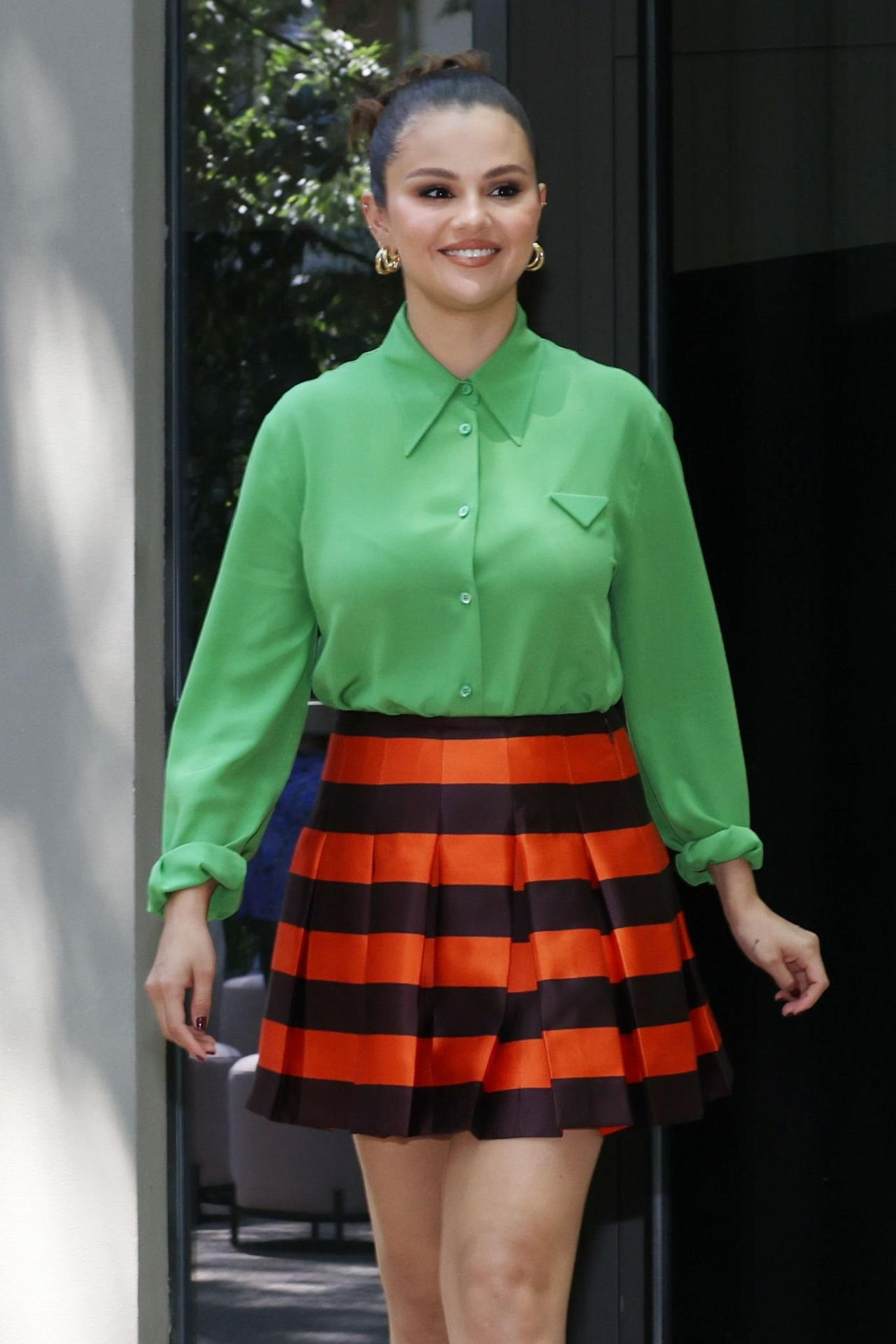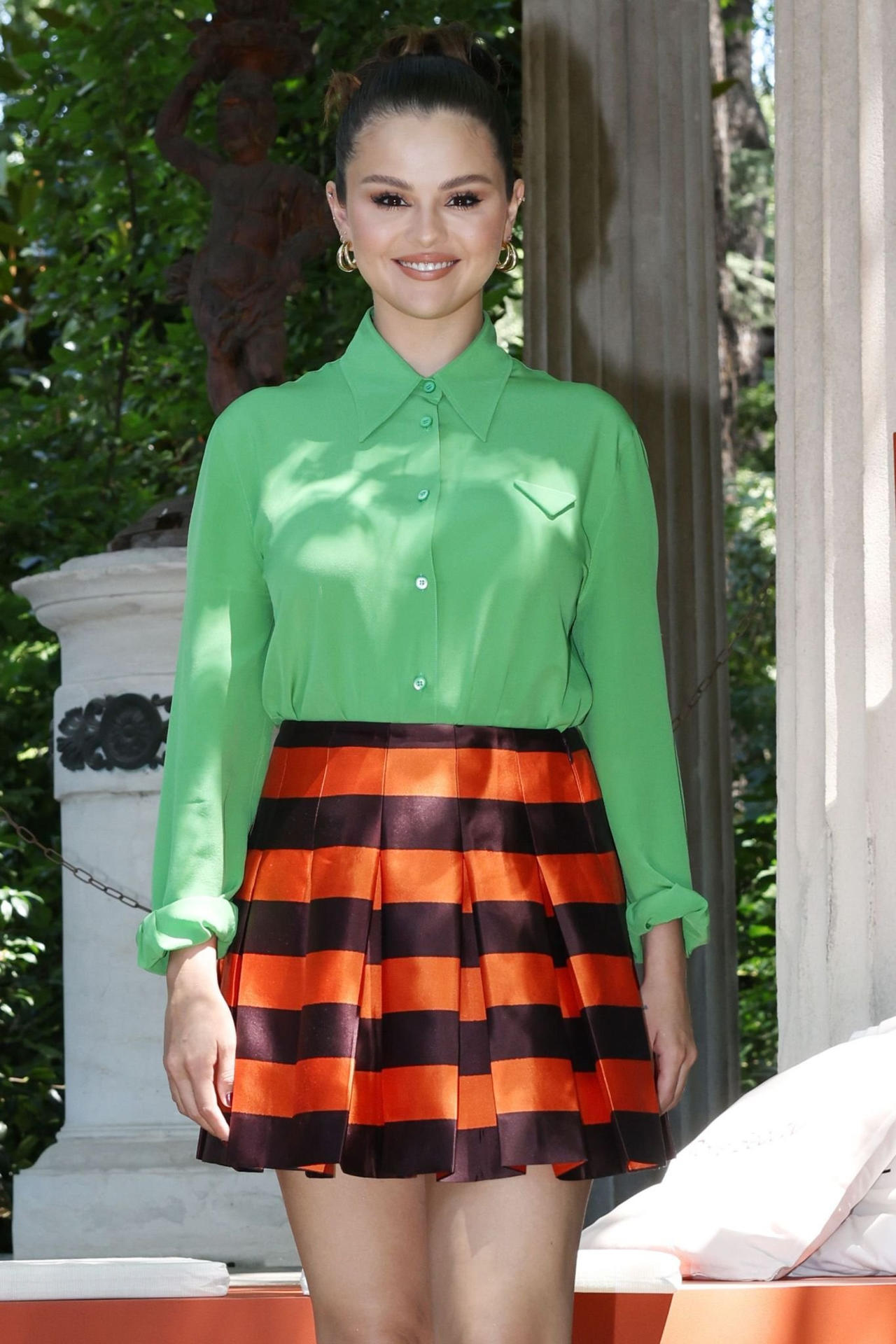Is Selena Gomez truly involved in these controversial leaks? A bold statement reveals that none of the so-called nude images or videos attributed to her are authentic. Fans and media outlets have been misled by fabricated content circulating online, often created using AI technology.
The internet has become a breeding ground for misinformation, particularly when it comes to celebrities like Selena Gomez. Over the years, numerous websites and social media platforms have claimed to possess explicit material involving the singer-actress. However, investigations consistently reveal these materials as deepfake creations or outright hoaxes designed to attract clicks and generate revenue through sensationalism. The public must exercise caution and critically evaluate the authenticity of such claims before believing them.
| Full Name | Selena Marie Gomez |
|---|---|
| Date of Birth | July 22, 1992 |
| Place of Birth | Grand Prairie, Texas, USA |
| Profession | Singer, Actress, Producer, Philanthropist |
| Education | Homeschooled due to acting commitments |
| Net Worth (Approx.) | $300 million (as of 2023) |
| Notable Works | Wizards of Waverly Place, Spring Breakers, Only Murders in the Building |
| Awards & Nominations | Multiple Teen Choice Awards, MTV Video Music Awards, and Billboard Music Awards |
In recent months, several incidents involving other celebrities highlight the growing problem of digital manipulation. For instance, Nicolas Cage's son Weston Cage made headlines after surrendering himself to LAPD following an alleged incident earlier this year. While unrelated to Selena Gomez's case, it underscores how easily misinformation spreads within celebrity circles. In today’s hyper-connected world, distinguishing fact from fiction requires diligence and skepticism.
One recurring theme in these controversies is the misuse of artificial intelligence. Advances in AI technology enable creators to produce highly convincing yet entirely fictional content. This phenomenon gained significant attention during what became known as The Fappening, where hackers allegedly accessed private iCloud accounts of various celebrities, including Selena Gomez. Subsequent analysis proved many of the purported leaks were digitally altered or completely fabricated. Despite this revelation, the damage had already been done—reputationally and emotionally—for those targeted.
It is crucial to address the ethical implications surrounding unauthorized sharing of intimate content. Even if proven false, such allegations can harm individuals' personal lives and professional careers. Celebrities face unique challenges navigating privacy issues in an era where every aspect of their existence seems fair game for public consumption. Platforms promoting explicit material under false pretenses exploit both the subjects and unsuspecting audiences seeking genuine content.
Streaming services and adult entertainment websites frequently capitalize on celebrity names to drive traffic. Terms like Selena Gomez Nude icloud Topless Leaked Video serve as clickbait titles designed to lure curious viewers into consuming potentially illegal or unethical content. Responsible internet users should report suspicious links to authorities while avoiding engagement with dubious sources.
Moreover, the psychological impact on victims cannot be overstated. Having one's likeness used without consent creates feelings of violation and helplessness. Many celebrities respond admirably by focusing on positive endeavors; however, constant exposure to negative narratives takes its toll. Selena Gomez, known for her charitable work and advocacy efforts, exemplifies resilience amidst adversity. Her commitment to mental health awareness further demonstrates her dedication to helping others overcome similar struggles.
As society grapples with evolving technologies, education becomes paramount. Individuals must learn to identify red flags associated with fake news and manipulated media. Verifying information through credible channels ensures accuracy while minimizing harm caused by spreading falsehoods. Major publications and reputable organizations play vital roles in disseminating truthful reports, but ultimately responsibility rests with each consumer.
Finally, legal frameworks need updating to better protect individuals against cybercrimes related to image theft and impersonation. Current laws struggle to keep pace with rapid advancements in digital tools available to malicious actors. Advocacy groups continue pushing for stronger protections at national and international levels, recognizing no single solution exists but acknowledging collective action yields progress.
While rumors persist regarding Selena Gomez's involvement in leaked materials, overwhelming evidence supports dismissing such claims as baseless. Instead, focus remains appropriately directed toward celebrating her achievements and contributions across multiple fields. By fostering critical thinking skills and supporting legislative reforms, we contribute positively to combating harmful practices plaguing modern media landscapes.




